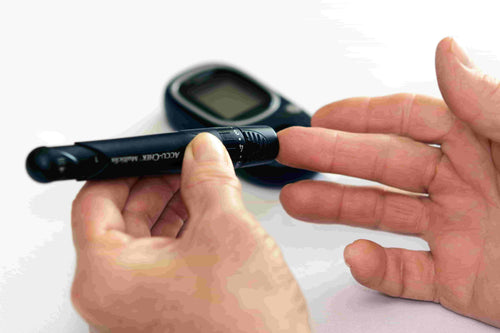Unlocking 5 Resveratrol Benefits: Balancing Hype with Science

Written by Georgia Chappell & Reviewed by Paul Holmes.
Exploring the benefits of resveratrol - This polyphenolic compound, found in red wine, grapes, and berries, has piqued interest for its potential health effects.
n this article, we’ll sift through scientific evidence to shed light on how resveratrol might aid in heart health, cognitive function, and disease resistance.
Avoiding hype, we focus on what the research really says about resveratrol benefits and how to safely incorporate it into your daily regimen.
Key Takaways
- Resveratrol is a polyphenol with potential antioxidant, anti-aging, and disease-fighting properties, found in foods like grapes and berries, and available as a supplement.
- The compound may provide health benefits such as improving cardiovascular health, supporting brain and cognitive function, aiding in diabetes management, though more research is necessary.
- Safe consumption of resveratrol generally involves low doses from food sources or carefully monitored supplementation; high doses may cause side effects or interact with medications, so consultation with a healthcare professional is advised.
What is resveratrol?
Resveratrol, a polyphenolic compound and powerful antioxidant, plays a protective role against damage that can precipitate serious diseases. This substance is naturally occurring in red grape skins, peanuts, and various berries and contributes to the health associations of red wine.
This compound has attracted interest for its purported anti-aging properties and its capability to combat disease. It’s thought that resveratrol stimulates the SIRT1 gene, which helps shield the body from obesity-related effects and age-associated illnesses. While there are suggested potential health benefits associated with resveratrol use in humans, it remains under-researched and data confirming efficacy is inadequate.
Extracts from Polygonum cuspidatum— an Asian plant— as well as those derived from red grapes or red wine serve as sources for resveratrol supplements commercially available today. Although ingesting small amounts present in foods is usually deemed safe, elevated doses via supplementation could potentially interfere with certain medical conditions or prescription drugs interactions.

5 Resveratrol Benefits in a Nutshell
1. The Power of Resveratrol: Antioxidant Properties and health benefits
Resveratrol is highly recognized for its potential antioxidant abilities. It may play a crucial role in counteracting damaging free radicals, diminishing inflammation and warding off diseases associated with ageing. Notably, it also lowers levels of malondialdehyde, significantly mitigating oxidative stress among individuals with diabetes.
The anti-aging benefits of resveratrol are intrinsically connected to its capacity as an antioxidant. By activating longevity genes such as SIRT1/3 known to combat age-related ailments, the compound maintains cellular health over time. It alters the expression of miRNAs involved in cellular ageing processes thus suggesting its usefulness in managing age-associated disorders.
Beyond these possible anti-aging and antioxidant effects, resveratrol’s influence extends to potential anti-inflammatory actions as well. It may be able to manage inflammatory reactions by inhibiting pro-inflammatory cytokines and modulating immune responses.. Although clinical findings remain inconsistent at times regarding this aspect.
Notably within the osteoarthritis patients’ treatment landscape,there has been some evidence showing that resveratrol may impact protective effects on joint tissues through suppression of inflammatory and degenerative factors.

2. Cardiovascular Health and Resveratrol
Resveratrol is recognized not only as a powerful antioxidant, but also for its potential to lower blood pressure and positive effects on cardiovascular health. Research from clinical trials has revealed that taking resveratrol supplements can lower systolic blood pressure, with this effect being more pronounced in individuals who are overweight or obese. Experimental studies conducted on hypertensive rodents demonstrate that resveratrol may reduce blood pressure, hinting at possible advantages for human health.
To the aforementioned benefits, resveratrol is associated with an array of health improvements such as anti-atherogenic effects which could deter the development of atherosclerosis, enhancement in cholesterol metabolism, and alleviation of arterial stiffness among patients experiencing cardiovascular complications. Notable decline in overall mortality rates and advancements related to risk factors connected to cardiovascular diseases.
What’s particularly captivating about how resveratrol supports heart function relates to its role in stimulating nitric oxide (NO) production within the blood vessels. By increasing endothelial nitric oxide synthase (eNOS) activity, it contributes remarkably well towards safeguarding cardiac welfare by promoting vasodilation and aiding in managing high blood pressure levels.

3. Brain Health and Cognitive Function
Resveratrol is notably being studies for maintaining brain health and cognitive abilities. It has been recognized for its capacity to:
- Shield neurons from harm
- Decelerate the progression of cognitive deterioration associated with ageing
- Combat inflammation that can impact both the heart and brain’s well-being
- Maintain memory performance and mental functions
Research emphasises that older individuals, especially those already experiencing cognitive deficits or endothelial dysfunction typical in Alzheimer’s disease cases, may experience greater advantages from resveratrol’s potential anti-inflammatory qualities. Consuming resveratrol regularly is correlated with improved cerebral and vascular function in postmenopausal women, providing a clue toward its capability to accelerate age-related as well as Alzheimer’s-associated cognitive decline.
Supplementing one’s diet with resveratrol could potentially counteract metabolic syndrome due to its inverse relationship with changes in fasting blood glucose levels. This connection indicates potential enhancements in energy metabolism which play a role not only against metabolic disturbances but also protect from declining cognition.

4. Resveratrol in Diabetes Management
Resveratrol supplements are recognized for their potential in addressing type 2 diabetes by enhancing insulin sensitivity and regulating blood glucose levels. This compound has shown promise as a complementary treatment to standard diabetes management strategies. In several clinical trials, individuals taking resveratrol experienced lowered insulin resistance and reduced fasting blood glucose, while also seeing an improvement in HDL cholesterol levels. The effectiveness of traditional oral hypoglycemic medications is augmented when used together with resveratrol, which contributes significantly to stable glucose control and decreased insulin resistance among those managing type 2 diabetes.
There are multiple potential health benefits attributed to resveratrol.
- It activates SIRT1 which leads to better mitochondrial function.
- It positively influences glucose homeostasis.
- It boosts insulin sensitivity.
- It reduces microalbuminuria providing evidence of its renal protective properties.
These advantages play a vital role for patients living with diabetes who face heightened risks of kidney issues.

5. Joint Health and Arthritis Relief
Resveratrol may help relieve joint pain by preventing cartilage from breaking down. To its possible advantages for improving heart health, enhancing cognitive abilities, and aiding in the control of diabetes, resveratrol could also mitigate joint discomfort and arthritis. This substance has the potential to avert cartilage deterioration, potentially easing joint pain. It might also play a role in diminishing inflammation.
The capabilities of resveratrol in combating arthritis may include:
- stimulating growth in chondrocytes
- curbing the degeneration of cartilage
- preventing death of chondrocytes
And this could be achieved possibly by influencing immune system responses along with mechanisms connected to apoptosis.
While initial preclinical findings are encouraging regarding resveratrol’s ability to treat disorders affecting human joints, more clinical evidence is needed to confirm its effectiveness. To truly gauge how well resveratrol can combat such conditions related to joints, advances that increase its bioavailability. For Insight into these investigations, consult research literature available under DOI 10.1016.

Resveratrol Dosage and Safety
When considering the addition of resveratrol supplements to one’s regimen, it is important to be aware of both appropriate dosages and possible adverse reactions. Resveratrol can typically be ingested safely in quantities up to 1500 mg daily for periods extending up to three months. There are instances where higher doses—ranging from 2000-3000 mg per day—are administered for durations between two and six months.
For adults contemplating the use of resveratrol supplements, standard practice involves consuming between 250-1000 mg each day over a course that does not exceed three months. These dosage ranges are often pursued with an eye towards harnessing the potential health benefits attributed to resveratrol supplementation. Notwithstanding these prospective advantages, high doses have been known to cause stomach discomfort. Therefore, it is essential to always seek guidance from a healthcare provider before commencing any supplement routine.
While exploring excessive intake beyond advised limits should certainly be avoided due to its capacity for inducing unfavourable outcomes, there are potential acknowledged benefits related to sensible resveratrol usage. However, usage still remains unsupported by definitive evidence favouring its effectiveness for treating specific health conditions.
Supplement Interactions
Resveratrol might also affect the way certain medications work by obstructing key enzymes required for their processing. If you consume resveratrol at doses equal to or exceeding 1,000 mg per day, it could disrupt how your medicines function due to its impact on cytochrome P450 isoenzymes that are pivotal in drug metabolism.
It’s essential to consult with your healthcare provider regarding possible interactions between any supplements you’re considering and your current medication regimen.
Safe Dosage Recommendations
Research indicates that resveratrol is safe to consume at certain levels, yet there hasn’t been a definitive conclusion on the best dose for human therapeutic benefits. Clinical trials have shown that doses of resveratrol up to 5 grams daily are well tolerated and safe. Taking more than 2.5 grams may cause gastrointestinal side effects including cramps, gas, and nausea.
Individuals react differently to various doses of resveratrol due to their unique tolerance thresholds. Hence there isn’t a one-size-fits-all dosage recommendation for this compound. It’s critical for individuals to seek advice from healthcare providers in order to pinpoint an optimal dosage tailored specifically for them. Considerations regarding the low bioavailability of resveratrol should be factored into determining its most effective dose, due mainly, because it undergoes rapid and comprehensive metabolism in the body.
Natural Sources of Resveratrol
Resveratrol supplements offer a straightforward option for consuming this advantageous substance, but it is also present in various natural food items. For instance:
- Grapes and especially their skins are rich with 5 to 10 mg of resveratrol per every 100 grams
- Blueberries, bilberries, strawberries, and red currants
These dietary options can help increase your intake of resveratrol.
Additional sources include nuts along with other botanical ingredients. For example, raw peanuts contain about 0.15 mg of resveratrol per 100 grams whereas boiled peanuts have a greater content at around 0.52 mg per 100 grams. Drinks like red wine are recognized as significant carriers of resveratrol too—with concentration levels ranging extensively from just about 0.1 up to an impressive 14.3 mg within each litre.

How to Incorporate Resveratrol into Your Diet
Ingestion of specific foods can contribute to the inclusion of resveratrol in your diet. Resveratrol is naturally found in:
- Grapes
- Wine
- Apples
- Peanuts
- Soy
The resveratrol in red wine comes from the skin of grapes used to make wine. Simply eating grapes or drinking grape juice might be a way to get resveratrol without drinking alcohol.
Another potent source of resveratrol, itadori tea is derived from Japanese knotweed and has been utilised traditionally within Japan and China as a treatment for conditions like heart disease and stroke.
For those seeking to incorporate this beneficial compound into their dietary routine, drinking red wine with restraint serves as an excellent source. Alternatively, direct supplementation methods such as capsules, tablets or liquid extracts are readily available forms of resveratrol supplements.
Enhancing your diet with fruits that possess natural levels of resveratrol — particularly berries such as blueberries and cranberries — is another valuable strategy for augmenting intake of the substance.

Who should avoid resveratrol supplements?
Certain individuals should exercise caution or avoid resveratrol supplements altogether. Pregnant and breastfeeding women are advised to steer clear of resveratrol since there is insufficient evidence to determine its safety during pregnancy and lactation. People with bleeding disorders or those on blood-thinning medication should also avoid resveratrol due to its potential to slow blood clotting, increasing the risk of bleeding. Individuals with hormone-sensitive conditions, such as breast, uterine, or ovarian cancers, should consult their healthcare provider before taking resveratrol as it may act as an oestrogen agonist.
Moreover, those scheduled for surgery should stop taking resveratrol supplements at least two weeks prior to avoid excessive bleeding. Patients with cardiovascular diseases and those taking medication for blood pressure or heart rhythm should use resveratrol with caution and under medical supervision, as it can affect blood pressure and anticoagulation. Lastly, anyone with a known allergy to resveratrol sources, such as grapes, wine, or berries, should avoid these supplements to prevent allergic reactions.
How much resveratrol to have daily?
The daily consumption of resveratrol may vary according to each person’s health objectives and requirements. It has been calculated that the median intake per day is approximately 100 micrograms, with wine and grapes being the primary sources within an average diet in Spain.
Evidence from clinical trials indicates that a daily dose of resveratrol up to 5 grams could be considered safe and well tolerated. There isn’t a consensus on the ideal dosage for therapeutic purposes in people. Importantly, anyone considering taking new supplements should seek advice from a healthcare provider beforehand.
A high dose of resveratrol consumption—higher than or exceeding 150 milligrams per day—could reduce systolic blood pressure
Resveratrol Potential Side Effects and considerations
It’s crucial to balance the potential health benefits of resveratrol with possible side effects and interactions with other medications before beginning any supplementation. Stomach discomfort is a common adverse effect, especially at high doses. Resveratrol may interfere with critical enzymes that metabolise different drugs, which could alter how certain medications work.
Seeking advice from a healthcare provider prior to initiating a supplement routine with resveratrol is essential. This step helps guarantee that integrating the benefits of resveratrol into your diet does not adversely affect current health issues or medication regimens you may have.
The Science Behind Resveratrol
The scientific community’s support for the health benefits of resveratrol is growing, with a multitude of studies underscoring it’s antioxidant and anti-inflammatory qualities. These findings have sparked considerable interest in leveraging the effects of resveratrol therapeutically. Research has pointed to positive impacts on cardiovascular health, the possibility of neuroprotection, and diabetes control associated with this compound.
Nevertheless, it should be recognized that while the health benefits of resveratrol seem promising indeed, additional research including clinical trials must be conducted to firmly establish both its effectiveness and safety when used in human treatments. The existing body of knowledge lays down a robust groundwork for grasping the potential advantages offered by resveratrol. We need more definitive evidence before fully endorsing these claims and must remain cautiously optimistic about their validity until then.
Conclusion
In summary, resveratrol is associated with a range of potential health benefits and may be an excellent component to incorporate into a well-rounded, healthy lifestyle. Among its possible advantages are:
- Its role as a powerful antioxidant
- The potential for supporting cardiovascular health
- Possible improvements in brain function
- Potential assistance in managing diabetes
The promise of resveratrol as a contributor to natural wellbeing cannot be underestimated.
It’s important to maintain a measured viewpoint when considering the addition of resveratrol supplements. This compound occurs naturally in items such as grapes, berries, grape juice, and particularly red wine. Supplementation should only complement an overall strategy focused on good health practices and should always come with professional medical advice.
Summary
We have delved into the health benefits of resveratrol throughout this article, highlighting its status as a powerful antioxidant present in sources such as grapes, berries, and particularly red wine. The discussion has covered how resveratrol could positively influence heart health, enhance brain function, assist with diabetes management and support joint health. We examined methods for including resveratrol in one’s diet through natural foods or by taking supplements like those offered by Naturecan.
Nevertheless, it is crucial to be aware that despite the promising nature of resveratrol as a beneficial compound for wellness enhancement purposes, research is essential to completely comprehend its impact on the human body. We always suggest seeking advice from a medical professional before embarking upon any novel supplement routine.
Frequently Asked Questions
Does resveratrol burn belly fat?
Studies indicate that resveratrol has the potential to notably decrease body weight, trim waistlines, and lower fat mass while enhancing lean body mass. Yet, to definitively determine its efficacy in human subjects, Proof is required.
Is it OK to take resveratrol every day?
Indeed, daily intake of resveratrol is deemed safe, and individuals can tolerate up to 5 grams each day. Nevertheless, higher doses have the potential to disrupt the action of specific medications.
What is the downside of resveratrol?
Resveratrol use carries several potential risks, such as liver dysfunction and bleeding disorders. There is also a lack of research concerning its safety for pregnant or lactating women. It can decelerate blood clotting processes which may lead to an increased likelihood of bruising and bleeding if used concurrently with specific medications that affect blood coagulation.
What is resveratrol good for?
Resveratrol supports cardiovascular health, joint function, metabolism, and cognitive processes thanks to its antioxidant properties, anti-inflammatory actions. It could also influence blood vessels and the process of blood clotting while alleviating pain and swelling, lowering blood pressure, moderating blood glucose levels, and bolstering immunity against diseases.
The substance may offer a shield in safeguarding against an array of other chronic diseases and ailments.
How can I incorporate resveratrol into my diet?
Ingest resveratrol by eating foods such as grapes, wine, apples, peanuts, and soy products or opt for consuming resveratrol supplements.
Products such as the Resveratrol Supplement offered by Naturecan are a source of these supplements.





